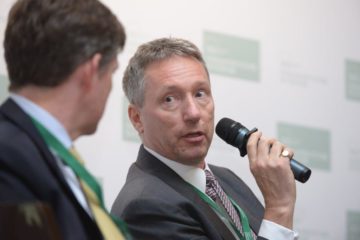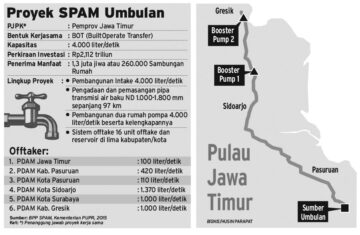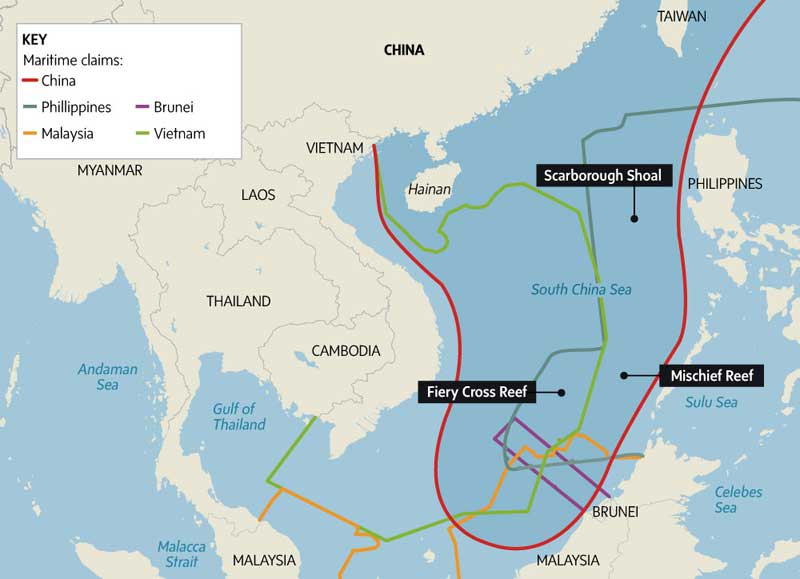
Andrew advises governments on their support for the obligations of State Owned Enterprises (SOEs) to projects and on revenue support for individual projects; as well as broader policy for building the enabling and regulatory environments within which the private sector can develop projects.
He is currently bidding in separate consortia for several Technical Advisory mandates to advise the governments of Indonesia and the Philippines.

In 2016, he worked with a leading management consultancy to raise up to $7 billion of funds to build a new capital city for a recently bifurcated state in India. The financing challenges were immense as, with no residents to begin with, a new city could not raise funds from the private sector so needed support from the newly created state which in turn needed support from the central government and the multilateral agencies. How some of this support could be wound back over time and replaced by private sector finance would be crucial; as ever, the process of acquiring the necessary land at sensible cost would be fraught. In the end, the World Bank decided that, for just these reasons, the project was simply too ambitious.
In 2010, as Head of Public Private Partnerships (PPP) Advisory Services at the the ADB, Andrew advised a number of Developing Member Country governments on how to set up an appropriate enabling environment in terms of relevant legislation and regulation; on the choices for government support for industry sectors and individual projects; on selection of pathfinder projects in each sector; and on likely financing appetite from domestic and offshore investors and lenders. He advised the ADB on what measures it should include in its terms and conditions when lending to governments so as to promote development of infrastructure featuring private sector participation. And he co-authored the bank’s business plan for promoting its PPP business across all infrastructure sectors including power.

In 2009 – 10, Andrew acted in joint venture with a Singapore-based financial advisory boutique, an Australian legal practice and a global engineering firm to advise Bappenas (the planning ministry) and the Ministry of Public Works on the long-running $235 million Umbulan Springs fresh water pipeline project in Indonesia. Issues included what risks could sensibly be transferred to the private sector, how the central government should best support obligations of the province and municipalities’ water distribution companies as offtakers to the project and how to effect structural change in the water companies so as to render them less needy of such support in the future. Financial close for the project was achieved some years later in 2016.
In 2006 – 7, Andrew advised the Indonesian MOF on various infrastructure plans which called for an ambitious $15 billion to be invested over the next several years. These included $10 billion to be spent on 10GW of coal fired power plant built for PLN (the state owned electricity utility) under its first Fast Track programme where PLN’s obligations under EPC contracts with Chinese-led joint ventures were guaranteed by the MOF; and up to $3 billion of capacity to be provided by IPPs supported by a Memorandum of Mutual Understanding between the MOF and JBIC to support Japanese-sponsored projects. (As it is, the MOF supports all of PLN’s business via the Public Service Obligation (PSO) subsidy.) He also scrutinised various transport projects. The Indonesian Infrastructure Guarantee Facility (IIGF), the Indonesian Infrastructure Finance Facility (IIFF) and a Risk Management Unit (RMU) in the MOF were also established. Thus, Indonesia was experimenting with various methods of government support, all of which began to be developed when Andrew was there. His role was to assess the nature and extent of government support for each such project and advise on the suitability of the terms and conditions proposed for each financing. This included consideration of how much risk should be transferred to the private sector and whether the government was prepared to pay for this. On the power programmes alone, issues included fuel supply arrangements, fuel mix policy, equipment procurement mechanisms, cost of the the PSO subsidy, assessment of value for money and how best to sell the story of Indonesia’s new found pragmatism to an investor and financier community which was still cautious on its ability to deliver such projects on a sustainable basis.
In the early to mid 1990s, Andrew helped develop early Public Private Partnership structures in the U.K., a World leader in PPP / Private Finance Initiative (PFI) / Private Sector Participation (PSP). Much can be learned from other countries’ experiences if appropriately adapted to a country’s particular constitutional set up and legal system.
Establishing policy for a government involves asking hard questions of what activities / businesses are already there; identifying what activities / businesses should be there but are not; collecting a lot of information not readily available through conventional channels; and resolving internal ownerships and conflicts. This takes judgment, tact and a lot of time and is often best conducted by a third party who knows the business. Andrew is able to do the research, lead the discussions, facilitate a consensus and review implementation – and do so on a more discreet and cost effective basis than could a bank, for example.
Andrew is a member of the UNECE roster of PPP experts.







